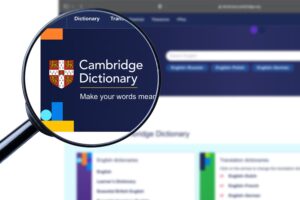The English language just got a major update—with 6,212 fresh entries recently added to the Cambridge Dictionary, including trendy Gen Z and Gen Alpha lexicon that has infiltrated social and mainstream media. Notably, “skibidi”, “delulu”, and “tradwife” are among the standout new entries.

“Skibidi”—sprung from the bizarre Skibidi Toilet YouTube series—can mean anything from “cool” to “bad,” or often nothing at all, serving more as a nonsensical catchphrase than a substantive term.
“Delulu” is a clipped form of “delusional,” used humorously to describe willingly believing something that’s not real or true. Fun fact: Australia’s Prime Minister even called a political rival “delulu with no solulu”—meaning delusional with no solution.
“Tradwife” reflects a controversial social media trend celebrating traditional homemaking roles; it describes a married woman who shares her cooking, cleaning, and family life online.
These additions highlight how internet culture—especially TikTok and YouTube—shapes modern language. Yet, not all reactions have been positive. Some critics lambast the inclusions as “brainrot,” questioning the dictionary’s standards. Others argue that dictionaries exist to reflect actual usage, and these terms have proven they’ll endure.
Cambridge’s Lexical Programme Manager, Colin McIntosh, emphasizes their careful approach: only words with “staying power” make the cut. He sees the evolving mix of digital slang, remote work culture, and niche jargon—like “mouse jiggler”, a gadget that simulates computer activity—as a fascinating record of linguistic change.